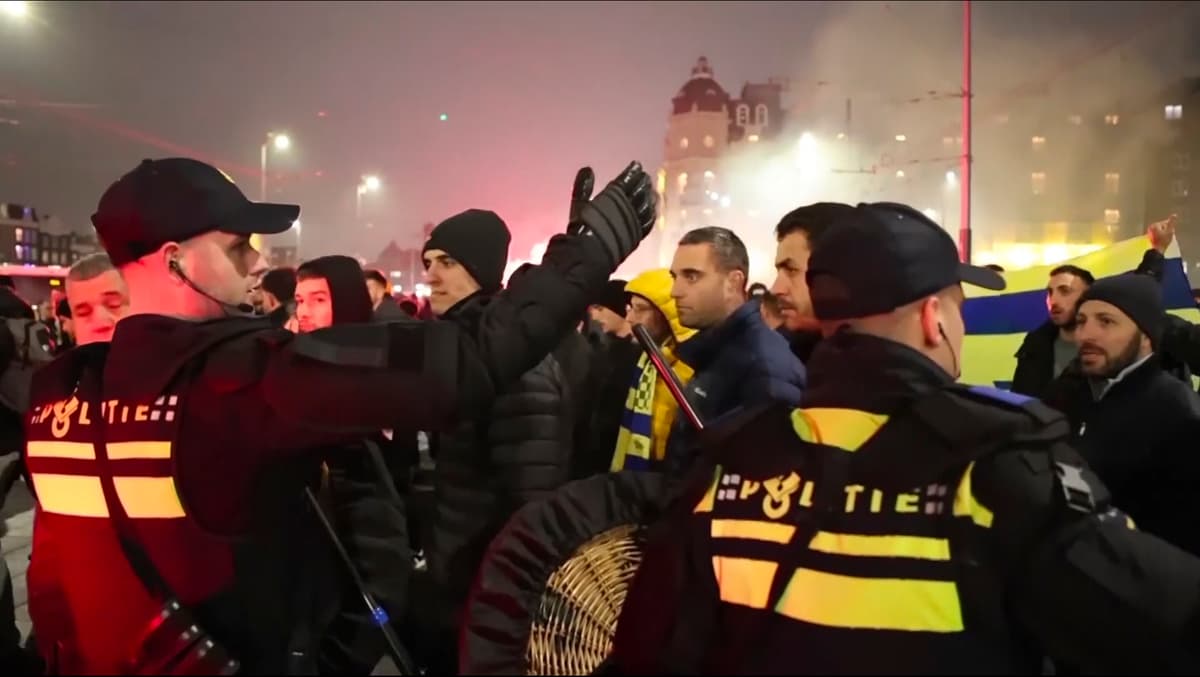On the Anniversary of the United Nations’ Declaration of Human Rights, Attacks on Jews Are Increasingly Ignored
Despite the rising tide of hatred and violence against Jews since the October 7 massacre, antisemitism is not being treated as a major human rights concern by many.

The Universal Declaration of Human Rights, adopted by the United Nations’ General Assembly following World War II and the Holocaust, was meant to eternalize the solemn vow “Never Again.” It was intended to create a world where all people, regardless of their background, would be protected from atrocities like those the Nazis committed against Jews and other minorities.
Yet today, December 10, the day when the international community celebrates the Declaration, there is one group whose rights are being systematically violated but excluded from consideration by the human rights community.
I refer, of course, to antisemitism. Despite the rising tide of hatred and violence against Jews since the October 7 massacre, antisemitism is still not treated as a major human rights concern by many.
From the October shooting of a Jewish man on his way to a synagogue in Chicago to the stabbing of a rabbi with a wooden stake in Maryland, antisemitic violence has become a frightening reality at unprecedented levels for Jewish communities across America. Some 61 percent of American Jews have experienced some form of antisemitism in the past year.
Globally, the threat is equally dire. In Europe, an antisemitic mob attacked Israeli soccer fans at Amsterdam. In Ireland, a Jewish student was beaten up in a bar; his crime — being Jewish. At Melbourne, a synagogue was set on fire in a chilling arson attack. In Abu Dhabi, Rabbi Zvi Kogan was kidnapped and murdered.
This last example illustrates the horrifying state of affairs within the international human rights community. While officials from the United Arab Emirates, Israel, and America condemned this heinous crime, leading human rights organizations like Human Rights Watch and Amnesty International remained silent.
The reality is that for the past 30 years, these groups erased antisemitism, and their inaction on the issue has become blatantly obvious since the Hamas-led October 7 assault against Israel. Major human rights organizations, including international NGOs and UN agencies, barely acknowledged the murder, rape, and kidnapping of Israelis — and then only belatedly.
Staying silent in the face of such violence normalizes intolerance against Jews, echoing the darkest chapters of history, and sending a message that Jewish rights are somehow less valuable than others..
Worse still, antisemitism is at times being exacerbated by the very groups that claim to champion the cause of universal human rights.
Consider the role of self-acclaimed human rights NGOs like Samidoun and the Palestinian Youth Movement that organize protests in America and Canada, where anti-Israel rhetoric frequently escalates into overt antisemitism.
At these events, calls for the destruction of Israel are accompanied by chants that openly call for violence against Jews. In some cases, demonstrations turned into scenes of physical violence.
NGO anti-Israel activism does not stop at protests and demonstrations. Many, under the facades of human rights and justice, conduct lawfare campaigns—strategic legal battles aimed at enforcing arms embargoes against Israel.
These NGOs, including those with verified links to designated terror organizations, relentlessly exploit courts with false narratives of “war crimes,” “violations,” “genocide,” “starvation,” and “apartheid.”
Glaringly absent from their discourse are Israeli victims — the civilians targeted by rockets, the families shattered by terror atrocities, and the countless lives disrupted by violence — anything that would highlight the genocidal mania of Hamas, Hezbollah, and Iran that necessitates robust Israeli defensive capabilities.
Make no mistake. These cases are about blocking Israel’s ability to defend itself and provide a safe homeland for Jews while distorting the principles of human rights and deepening the isolation of Jews globally.
For the Universal Declaration of Human Rights to truly be universal, NGOs that claim to promote the values contained therein must seriously reevaluate their approach to antisemitism.
In their advocacy and collaborations, we must ask: are the NGOs fighting for human rights for all, or are they supporting political agendas that harm Jews?
The donors who fund these organizations — whether private individuals, foundations, or governments — must also ask themselves if they want to be complicit in ignoring and normalizing antisemitism.
It is time for the international human rights community to stand unequivocally and unapologetically against antisemitism. If they do not, they will betray the very ideals upon which the modern universal human rights movement was founded.

